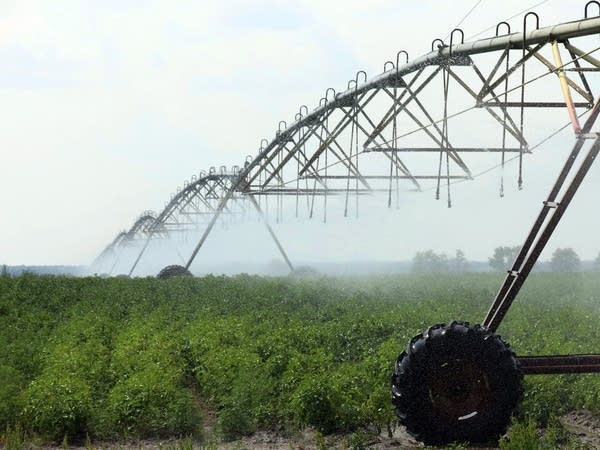White Earth Nation pauses enforcement of water use ordinance

Go Deeper.
Create an account or log in to save stories.
Like this?
Thanks for liking this story! We have added it to a list of your favorite stories.
Quick Read
The White Earth Nation is pausing enforcement of a water use ordinance and will form a regional task force to study water quality and quantity issues.
The White Earth Reservation Business Committee approved an ordinance last year that required tribal permits for farmers who pump water for irrigation within reservation boundaries or in a five-mile buffer around the reservation.
Last month the large potato growing corporation R.D. Offutt Farms challenged the permits in federal court, asking a federal judge to rule that the White Earth Nation does not have authority to require water use permits since the company already has Minnesota state permits.
Last week, the White Earth Reservation Business Committee passed a resolution to pause enforcement of the ordinance for existing water sources permitted as of May 2023 by the Minnesota Department of Natural Resources.
Turn Up Your Support
MPR News helps you turn down the noise and build shared understanding. Turn up your support for this public resource and keep trusted journalism accessible to all.
They also repealed the five-mile buffer area around the reservation for water use regulation.
At least one local farmer said he still has a water permit case pending in White Earth Tribal Court. Court officials have declined to say how many water use permit violations were referred to tribal court.
The RBC also directed the White Earth Division of Natural Resources to establish a regional task force including tribal, county, state, federal and watershed officials. The task force would examine issues of water management and protection.
The RBC directed the Division of Natural Resources to prepare a status report by December of 2026.
Tribal officials did not respond to requests for comment.
In a statement sent to MPR News, R.D. Offutt said the company is “carefully evaluating White Earth Nation’s water policy changes and new timeline to determine impact.”
“Minnesota farmers continue to need clarity and predictable, well-established rules when it comes to water regulation,” it stated.


